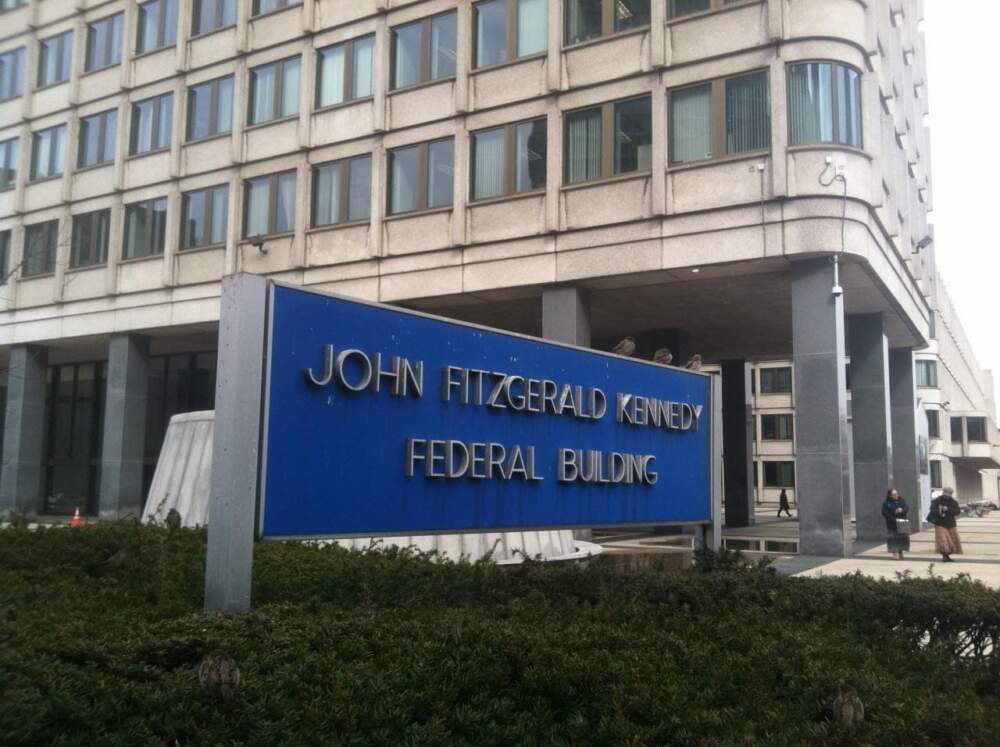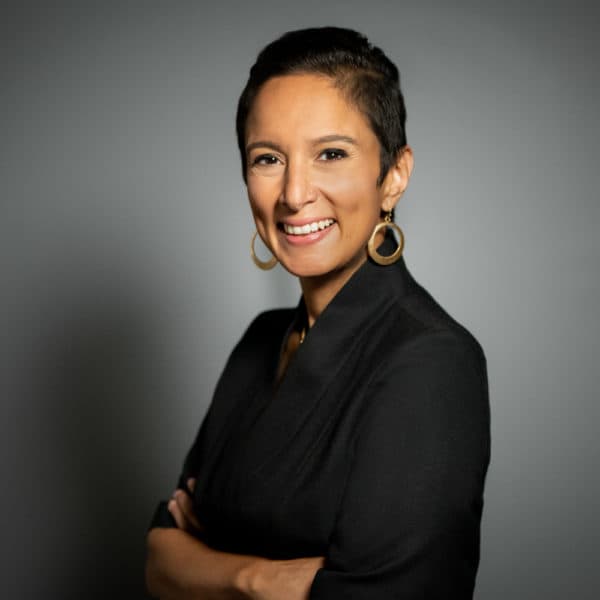Advertisement
New report finds Boston immigration court makes seeking asylum harder
Resume
July marks two years since the Biden administration announced it would open a fast-tracked immigration court in Boston. The so-called “Dedicated Docket” was supposed to speed up the process and make it fairer for people seeking asylum.
A new report from the Harvard Immigration and Refugee Clinical Program is the first review of how the court is working — and the results aren't good. The report's lead author and program fellow Tiffany Lieu, joined WBUR's Morning Edition host Rupa Shenoy to break down the details.
Interview Highlights
This interview has been lightly edited for clarity.
On the report’s findings:
“What we've found is that asylum seekers who have been assigned to the Dedicated Docket in Boston are less likely to obtain asylum. And these disproportionately negative outcomes are in large part because asylum seekers on the Dedicated Docket are less likely to have legal representation. And for those who are ordered removed, many are removed without even having their day in court.”
On the number of people deported:
“Based on our study, up until August of 2022, what we found is that over 1,600 people have been ordered removed on the Boston Dedicated Docket. That's 34% of the completed cases. By contrast, only 4% of people who have been assigned to the Dedicated Docket here in Boston have been granted asylum. When we talk about the communities who have been impacted, there is a large proportion of people from Brazil. Over 74% of the Dedicated Docket are people from Brazil and over 40% of people and asylum seekers are children.”
On whether people applying for asylum through the Dedicated Docket were able to get local legal aid:
“The frank reality is that there simply are not enough resources to go around. When immigrants appear in immigration court, judges provide them a list of pro bono — meaning free — legal service providers. And in our research, what we found is that the vast majority of them are at capacity and are unable to take on new cases.
“The unpredictability that the Dedicated Docket imposes makes it even more difficult for these legal service providers to provide representation. And to take a step back, asylum seekers in the U.S. have a right by law to have immigration representation, but at their own expense. What that means in practice is that asylum seekers either have to be the lucky few who are able to obtain pro bono representation from these legal service providers who are under resourced, or have the means to obtain private representation.”
On the outcomes for asylum seekers who were not able to obtain legal representation:
“Every single person who was granted asylum on the Dedicated Docket here in Boston had legal representation. And of those who were ordered removed, over 60% of them were unrepresented.”
On the response from officials:
“We have not yet received official response to our report directly. We are hopeful that some change will be made but advocacy is needed on this front.”
On their recommendations for change:
“First and foremost, the Biden administration should terminate the Dedicated Docket and impose safeguards and ensure safeguards to protect the rights of asylum seekers. This would start by terminating the Dedicated Docket because it simply is not possible to have these expedited proceedings while also safeguarding access to justice and counsel for individuals.”
This segment aired on June 27, 2023.

